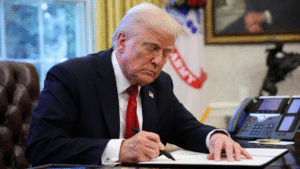Digital Diplomacy: How Technology Is Reshaping Global Relations
As the world becomes increasingly digitized, so does diplomacy. The rise of real-time communication, cybersecurity, artificial intelligence, and data-driven strategy is transforming how countries engage with one another. The traditional face-to-face negotiations in ornate conference halls are now often complemented—or even replaced—by virtual summits and encrypted chat rooms. This shift marks the beginning of a new era in technology in global diplomacy.
Whether it\’s responding to cyber threats, mediating international conflicts, or collaborating on health and climate issues, technology plays a critical role. It\’s no longer just a backdrop—it’s a tool of influence, cooperation, and sometimes, confrontation. This article explores how tech is becoming a diplomatic asset, and what it means for international relations moving forward.
Cyber Diplomacy: Responding to Digital Threats
With cyberattacks on the rise, nations are increasingly treating digital infrastructure as national security. As a result, global diplomacy now involves treaties, pacts, and partnerships focused on cybersecurity.
Examples include:
- The U.S.-EU Cyber Dialogue to promote global cyber norms
- China and Russia\’s push for \”digital sovereignty\” within their borders
- Global efforts at the United Nations to establish guidelines for responsible state behavior in cyberspace
These initiatives show that digital security has become a core issue in foreign policy, as states aim to balance innovation with protection.
Technology-Driven Crisis Management
From the COVID-19 pandemic to climate-related disasters, diplomacy increasingly relies on real-time data sharing and virtual coordination. During the pandemic, tech-enabled diplomacy allowed global leaders to collaborate on vaccine distribution through platforms like COVAX.
Similarly, satellite imagery and AI forecasting tools have become central to humanitarian and environmental diplomacy. Organizations like the United Nations use these tools to assess damage in conflict zones or monitor deforestation, helping nations act swiftly and collaboratively.
Digital Tools for Peacebuilding and Dialogue
Social media and online forums have also become instruments of soft power. Diplomats now use platforms like X (formerly Twitter), LinkedIn, and even Clubhouse to shape narratives, advocate policy, and engage foreign publics.
Known as \”digital diplomacy\” or \”Twiplomacy,\” this method has been adopted by major powers such as the United States, the European Union, and India to share information and sway public opinion in real time.
However, this also opens the door to misinformation campaigns, bot-driven propaganda, and state-sponsored influence operations—problems that make tech both a tool and a battleground.
Tech Collaboration as a Bridge
Despite rising geopolitical tensions, technology can also foster international cooperation. Shared initiatives in areas like space exploration, climate tech, and health innovation have brought together traditional rivals.
For instance:
- NASA and the European Space Agency (ESA) collaborate on Mars missions
- China and the UN Office for Outer Space Affairs have worked on inclusive satellite programs for developing nations
- AI ethics frameworks are being co-developed by international coalitions, including countries with opposing political ideologies
These tech-driven collaborations offer a hopeful outlook, showing that diplomacy still has room to grow through shared scientific and technological goals.
The Ethical Dimension
As technology plays a larger role in diplomacy, ethical challenges arise. Should countries export surveillance tech to regimes with poor human rights records? What are the rules for using AI in defense or diplomacy?
Efforts are underway to answer these questions through multilateral frameworks. For example, UNESCO recently approved recommendations for the ethical use of AI, which many countries have endorsed.
At the same time, global watchdogs and NGOs are advocating for more transparency and fairness in how countries use digital tools for diplomatic purposes.
Conclusion
The integration of technology in global diplomacy is no longer optional—it’s inevitable. Whether as a tool for peace, a vector for conflict, or a bridge for collaboration, tech is transforming the playbook of international relations.
As the digital landscape evolves, so must diplomacy. Success in this new era will depend on innovation, cooperation, and a shared commitment to ethical engagement. Countries that can adapt will not only influence global policy but help shape a more connected, responsive, and resilient world.
Sources:
- Brookings – Digital Diplomacy in the 21st Century
- Carnegie Endowment – Technology and the Future of Diplomacy
- United Nations Chronicle – Digital Diplomacy and the UN
- UN Resolution on Responsible Behavior in Cyberspace





Post Comment